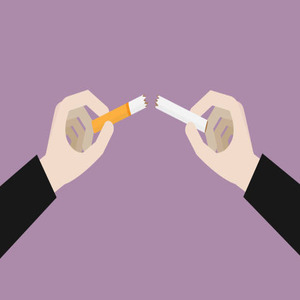
Tobacco Treatment Guide: For Patients and Their Families
The information in this guide will help you understand the benefits of quitting or cutting back on the amount of tobacco products you use, identify the reasons you may want to quit, and help you learn how to cope with smoking urges as you get ready to quit smoking now or sometime in the future.
This guide will also:
Teach you how to cope with the urge to smoke
Help you come up with a plan to quit smoking
Let you know what to expect when you quit
Help you get support from your friends and family
Teach you ways to manage cravings and nicotine withdrawal
Give you tips on how to stay a nonsmoker once you quit
About Restora onco care Tobacco Treatment Program
You may be able to quit just by using this guide, but most people benefit from getting support from a counselor who specializes in helping people quit smoking and by taking medication. The Tobacco Treatment Program at Restora onco care (ROC) in helping people with cancer, cancer survivors, and their family members. We understand the challenge of wanting to quit smoking while at the same time dealing with the stress of a cancer diagnosis, treatment, and the fear of recurrence (cancer coming back).
ROC Tobacco Treatment Program offers recommendations for safe and effective use of medications to help you quit smoking, (such as nicotine replacement therapy (NRT), bupropion (Zyban®), and varenicline (Chantix®)), coaching, and ongoing support to anyone who wants to quit or who is thinking about quitting smoking. We can also recommend other support services here at ROC and in your community.
Find Your Reasons to Quit
Quitting smoking and your cancer care
There are known risks if you continue to smoke and benefits if you quit no matter what kind of cancer you have or what stage it is. The sooner you quit, the better but it is but it’s never too late to quit!
If you or someone you love is being treated for cancer, the changes in your priorities and outlook on life may help motivate you to quit. If you’re a cancer survivor, knowing you beat cancer may encourage you to live a healthier life. There are lots of good reasons to quit—we’re here to help you find yours.
Here are some ways quitting smoking can help with your cancer care. Check off the points that matter most to you and add any extra personal reasons to quit to your list. Remember to talk with your doctor and find out more about how quitting smoking may improve your cancer care and outcomes.
Quitting smoking:
Lowers the amount of side effects you’ll have.
Helps improve your breathing after surgery.
Lowers your risk of your cancer coming back.
Lowers your risk of getting new cancers.
Helps your heart and lungs work better.
Improves your sleep and helps you feel less tired and have more energy.
Helps you feel less stressed and have a better quality of life.
Improves your self-esteem.
Helps you feel more in control of your life.
Can lower your risk of dying from cancer and other diseases.
Improves your sense of smell and taste.
Improves your appetite.
Improves the effectiveness of your cancer treatments.
Your reasons to quit smoking
Knowing the health benefits of quitting is enough to motivate many people to quit, but many people have other personal reasons for wanting to quit. Quitting smoking is a big decision, so it’s important to do it for reasons that mean something to you.
Here are some reasons people in our program have quit smoking. Do you have any of the same reasons to quit? If so, check them off, and use the blank spaces to write in your own reasons.
I want to quit smoking because:
I want to be more actively involved in my cancer care.
I want to have more energy.
I want to set a good example for family and friends.
Smoking is expensive.
Smoking smells bad.
Smoking causes yellow teeth and unhealthy gums.
I want freedom from tobacco addiction.
Most of my friends have already quit.
I want to see my children and grandchildren grow up.
I want to reduce my family’s worry about my health.
Health benefits of quitting
Everyone can benefit from quitting smoking regardless of how long you’ve been smoking for. Here are some of the health benefits you’ll experience starting from 20 minutes after quitting.
20 minutes after quitting smoking • Your blood pressure lowers to a normal level.
• The temperature of your hands and feet increases to a normal level.
8 hours after quitting smoking • The carbon monoxide (an odorless, colorless toxic gas released into your bloodstream when you smoke cigarettes) level in your blood drops to normal.
24 hours after quitting smoking • Your risk of having a heart attack begins to drop.
2 weeks to 3 months after quitting smoking • Your blood circulation improves.
• Your lungs start working up to 30% better.
1 to 9 months after quitting smoking • Your coughing, sinus congestion, and shortness of breath decrease.
• You have more energy.
Dr Avinash Talele. Best Medical Cancer treatment Doctor in Dombivli




